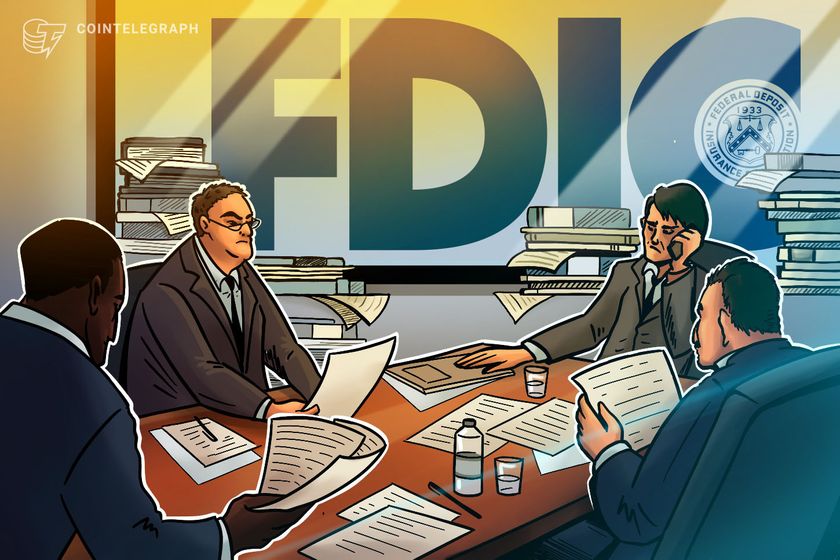
The US Federal Deposit Insurance coverage Company, an impartial company of the federal authorities, is reportedly transferring to cease utilizing the “reputational danger” class as a technique to supervise banks.
According to a letter despatched by the company’s performing chairman, Travis Hill, to Rep. Dan Meuser on March 24, banking regulators mustn’t use “reputational danger” to scrutinize companies.
“Whereas a financial institution’s popularity is critically necessary, most actions that would threaten a financial institution’s popularity achieve this by conventional danger channels (e.g., credit score danger, market danger, and so on.) that supervisors already deal with,” notes the letter, first reported by Politico.
In keeping with the doc, the FDIC has accomplished a “overview of all mentions of reputational danger” in its laws and coverage paperwork and has “plans to eradicate this idea from our regulatory method.”
Reputational danger and debanking
The Federal Reserve defines reputational danger as “the potential that detrimental publicity concerning an establishment’s enterprise practices, whether or not true or not, will trigger a decline within the buyer base, expensive litigation, or income reductions.”
The FIDC letter particularly talked about digital belongings, with Hill noting that the company has typically been “closed for enterprise” for establishments focused on blockchain or distributed ledger expertise. Now, as per the doc, the FDIC is engaged on a brand new path for digital asset coverage aiming at offering banks a technique to have interaction with digital belongings.
The letter was despatched in response to a February communication from Meuser and different lawmakers with suggestions for digital asset guidelines and methods to stop debanking.
Industries deemed as “dangerous” to banks typically face important challenges in establishing or sustaining banking relationships. The crypto trade confronted such challenges throughout what grew to become generally known as Operation Chokepoint 2.0.
The unofficial Operation led to greater than 30 expertise and cryptocurrency firms being denied banking services within the US after the collapse of crypto-friendly banks earlier in 2023.
Associated: FDIC resists transparency on Operation Chokepoint 2.0 — Coinbase CLO






